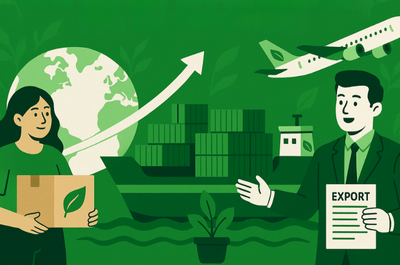The global shift towards sustainability presents new export opportunities for the Philippines in environmental goods and services (ESG), according to a new report by the International Trade Centre (ITC).
The report, Climate Change and Trade in the Philippines, said the growing green market for EGS is an example of these opportunities, which have been created by climate change and other environmental concerns such as biodiversity, reducing plastics pollution, and chemical safety.
“Satisfying these demands depends on access to, for instance, renewable energy technologies, energy-efficient products and sustainable agricultural practices,” it said.
Citing a manual earlier released by Organisation for Economic Co-operation and Development, the report said EGS are ‘goods and services to measure, prevent, limit, minimize or correct environmental damage to water, air and soil, as well as problems related to waste, noise and ecosystems’.
The World Economic Forum estimates that environmental goods, as a share of total manufactured goods trade, could reach 15 percent in 2030, up from 11 percent in 2022, it added.
The report said the circular economy also offers growth opportunities in areas such as product design and innovation and extended producer responsibility.
Examples in Southeast Asia include plastic and electronic waste management, food, renewable energy, tourism and textiles, it said.
The ITC report said the Philippines could develop its clothing industry to align with emerging circular economy requirements, such as European Union conditions on product reparability, upgradability, durability and recyclability.
“By integrating these principles into design and production processes, the sector can position itself competitively in global markets, where national regulators and private firms are increasingly demanding circularity,” it said.
“Exploring trade-related standards and regulations that would support the circular economy in the region is key to open export opportunities and circular production models in the Philippine economy,” the report added, citing the Framework for Circular Economy for the ASEAN Economic Community.
The report said the Philippines can further leverage its abundant natural resources, particularly its geothermal reserves, high solar irradiance and wind energy potential, to expand its renewable energy sector.
“The country can aim to power its industrial parks entirely with renewable energy, reducing the carbon footprint of exports from these areas. By offering renewable energy options, the government could attract investments in the crucial and energy-intensive semiconductor industry, allowing brands to offer more sustainable electronics,” it said.
Aligning with international environmental standards and certifications could make Philippine goods more attractive to environmentally conscious global consumers, thereby opening new markets and strengthening the country’s competitive edge in the global economy, it added.
The ITC report further said tapping into the booming green market requires substantial investment in technology and infrastructure.
“The market for green goods is expanding, creating opportunities for countries that can supply these items. However, capitalizing on these opportunities, including for small businesses, requires considerable investment in technology and infrastructure to produce and export green goods competitively,” it said.
The report said that with abundant geothermal, solar and wind resources, the Philippines can further develop its renewable energy sector to meet both domestic and international demand.
“Investments in the production of solar photovoltaic equipment could boost the economy and create jobs. By focusing on green competitiveness and aligning its export strategies with global sustainability trends, the Philippines can strengthen its position in the growing green market globally,” it added.
August 13, 2025













